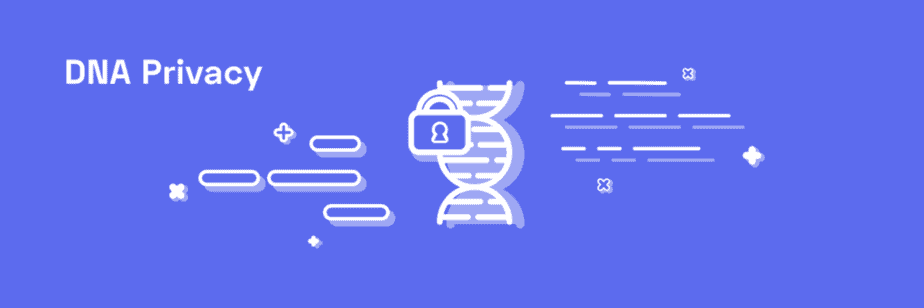Edited by Christina Swords, Ph.D.
February 20, 2019
Genetic testing kits are one of the hottest consumer products on the market today. More than 26 million people have taken an at-home ancestry test. In the last year alone, more people have done a direct to consumer DNA test than all prior years combined. If the trend continues, it is estimated that within the next two years, over 100 million people will have purchased DNA testing to find out about their ancestry and genetic makeup.
DNA sequencing can provide curious consumers with lots of information about themselves and their potential to develop certain diseases. If the test finds BRCA mutations, for instance, that indicates a greater susceptibility to breast and ovarian cancer. Because costs are coming down so quickly, genome sequencing is likely to become a routine test that your doctor will order and review with you or that many will order from their own homes.
Our survey of over a thousand people has found that the primary reason why people haven’t had their DNA sequenced is due to concerns about privacy and control of genetic data, nearly the same weight as price (Figure 1). Unsurprisingly, data privacy concerns are resulting in slower growth of personal genomics companies.
Diagram based on 1000+ survey respondents who signed up for Nebula email list prior to launch in November 2018.
Proceed with caution
In the rush to get their DNA test people may not be thinking about the privacy of their personal information. What happens to this most personal data afterward, and who controls it? What is the exact chain of custody for the blueprint of your being?
It’s a key question at a time when every kind of data privacy seems to be an illusion. Facebook has been a front page news story for its ongoing data privacy scandals. In December of 2018, it was revealed that the company exempted some of its top business partners from privacy rules that their main user base relied on, exposing highly personal information. Popular consumer DNA testing companies and genealogy sites make their money by selling the genetic data they gather from consumers who do not always fully understand what they are agreeing to. Most recently 23andMe sold a $300 million stake in its business to GlaxoSmithKline, one of the largest drug makers, in exchange for access to their DNA database of 5 million customers. While the data can be useful for medical research, consumers are the ones who contributed their data in the first place – so shouldn’t they have been part of the payout?
Scientific research is just one use case for DNA databases. Recently, multiple cold criminal cases, such as the case of the Golden State killer have been spectacularly solved using DNA databases. Suspects were found after DNA from the crime scenes matched the DNA of a relative who was found through a genealogical DNA database. Though the suspects themselves had never done a DNA test, someone in their biological family tree was the missing link for the crime to be solved.
Your DNA could be used for more than just catching criminals. The same approach could be used by authoritarian governments to discriminate against or prosecute groups of people. Discrimination by non-government organizations is likely to be much more common. In the U.S. the Genetic Information Nondiscrimination Act (GINA) protects against discrimination by health insurance companies, however, the law does not apply to insurance companies and disability insurance companies.
If you can’t rely on data protection and nondiscrimination laws or company privacy policies, and if the very business model of most direct to consumer genetic testing companies is based on selling your personal data, how can consumers preserve their data privacy and still get the benefits of a DNA test and help accelerate medical breakthroughs?
Good news; there’s a new approach
We believe the solution for private DNA testing lies in technology rather than policies, which is exactly the approach of Nebula Genomics. What sets Nebula apart is that we’re committed to developing technology to protect the privacy of your genetic data and enable you to share it controllably and securely (Figure 2).
- Data Ownership: You are assigned irrevocable (permanent) ownership of your genomic data on a publicly-readable ledger. This enables transparent record keeping of all data access requests and permissions. The identities of researchers who access your data are immutably (unchangeable) recorded which helps establish accountability.
- Access Control: Your genetic data will be protected against misuse, hacking, and unauthorized access through an encryption scheme that uses multiple keys which are distributed between multiple, independent, non-profit research organizations. This multi-party access control will ensure that no single organization, including Nebula Genomics, will have access to your genetic data.
- Secure Sharing: If you decide to share access to your genetic data, it will remain in a secure computing environment. Researchers will submit analysis pipelines which will be executed on your genetic data and only the results will be returned back to them. Furthermore, for some common computation such as queries and genome-wide association studies, we will deploy a homomorphic encryption scheme that will enable computing on encrypted data.
For a more detailed description see Grishin et al. Accelerating genomic data generation and facilitating genomic data access using decentralization, privacy-preserving technologies, and equitable compensation. Blockchain in Healthcare Today (2018).
As we develop relationships with drug makers and academic researchers, you can choose to be compensated if you consent to share your genomic data. More importantly, you have the ability to directly contribute to transformative research to help find new treatment options or even cures. Nebula provides the opportunity for everyone to make a difference by participating in research from the comfort of their own home.
Get Secure SequencingQuestion? Send us a note at support@nebula.org. We’re here for you!
Also, take a look at our recent interview on DNAweekly in which we discuss our focus on privacy-first DNA testing!
